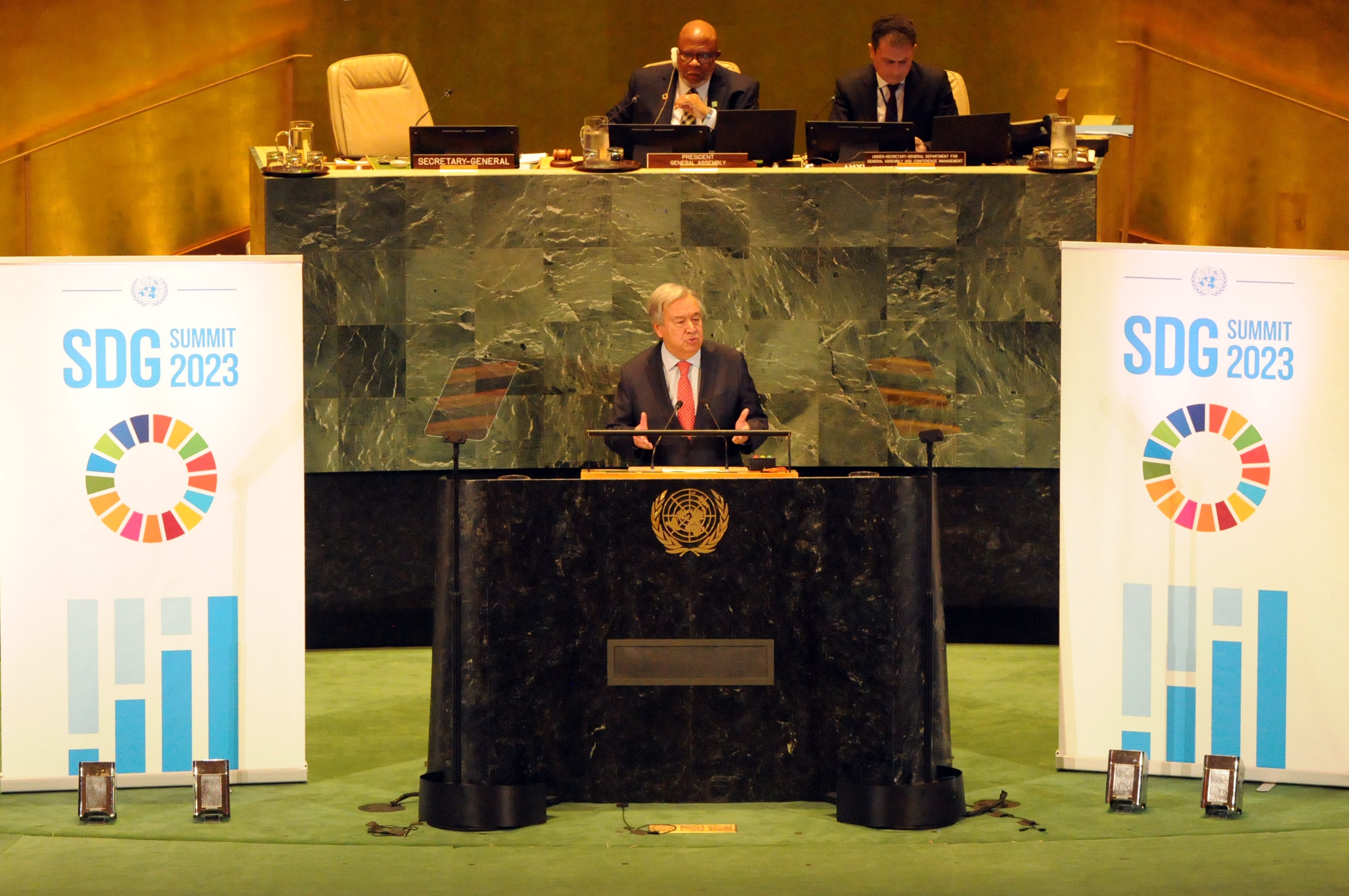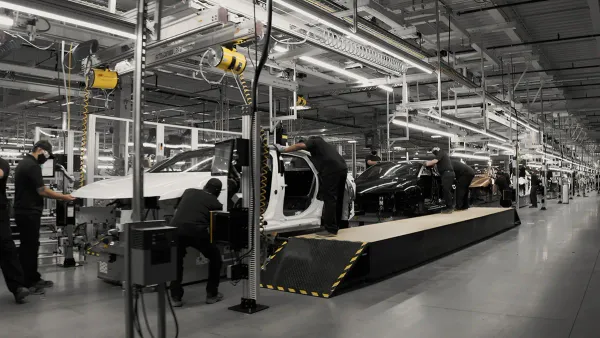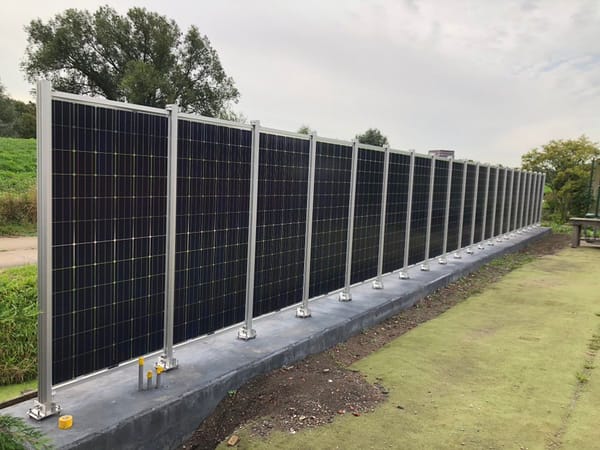How development and trade liberalization became climate issues
Good afternoon!
One of the things about politics – and let’s be honest, that’s what climate negotiations are – is that you often get unexpected outcomes from something that otherwise seems mundane. That’s what this last week’s U.N. meet up produced. Let’s get into it!
-Mike

Last week was Climate Week in New York City as well as the U.N.’s “High Level Forum on Sustainable Development”. Climate Week was an opportunity for a bunch of climate advocates to meet up and talk shop, while the High Level Forum on Sustainable Development (which is a mouthful, like most U.N. meetups) was a chance for national leaders from around the world to talk shop and advocate for some of their favorite green policies in advance of the big climate meeting in Dubai this December.
I did not go, for a number of reasons, but from what I can see, it was a success in that a lot of people who agree climate change is bad were able to get together and agree on that. But how exactly do you decide if a U.N. meeting is a success?
The main document to review from these kinds of meetups is the political declaration, a communique that everyone attending the meeting can agree on. As with most U.N. documents (and let’s be honest, most political documents) there’s a lot of restating of things everyone already agrees on and then eventually, buried deep down inside is a nugget of gold.
Last week’s nugget came on page 10 of paragraph 38(t), with nine subparagraphs on international development lending and a giant subparagraph on trade liberalization. These subparagraphs were not a success in and of themselves. They are an indication of where things on climate seem to be headed.
But before I get into that, I want to ask a couple questions about what it means to be successful on climate issues broadly.
The big problem with fixing climate change is that to be effective we have to work with everyone, since carbon emissions are boundary ignorant. Making things more difficult, every community around the world has a different set of interests they want to put first – and by the way, how do we exactly define “success” with all of these different communities, each with their own viewpoints?
“Aha!” You might say,” I know what success is with climate change, it’s keeping the world below 1.5C of warming.”
That’s a pretty good measure of where we’re at, but the thing is, while scientists know that increasing carbon emissions raise the world’s temperatures through the Greenhouse Effect, they aren’t quite sure how much carbon emissions need to be removed and how fast before we’ll actually see a difference. In fact, some scientists believe we’re only now seeing warming as the result of carbon emissions from twenty years ago – it takes that long to sink in. So, we might be stuck with another 20 years of warming, even if we started reversing things today.
But, OK, fine. Let’s pick that 1.5C number – even though we’re at about 1.15C right now – and imagine that we, as the humans we are, can wait twenty years to check to see if we’re having some actual success.
OK. Totally stop putting carbon into the air, and pull a few hundred billion extra tons of carbon out of the air, wait twenty years. Yeah. We can do that, right?
So, while we wait twenty years to see if things are working out, how do we measure success? And here is where things get really messy, because humans can’t stay on one track for twenty years without questioning if it’s the right thing – and because we get all kinds of other ideas on how we should be fixing things.
So, last week’s political declaration. The Sustainable Development meetups happen every four years. The last one was in 2019 and this one seems to have drawn a great deal more interest – especially from the “Global South”. In 2019, 38 top leaders showed up. This year, 57. That’s a big change, and what they pushed for were these ten or so subparagraphs mainly asking for four things: Increased foreign aid for developing countries, debt restructuring for developing countries, a general expansion of development aid, and an expansion of trade through the World Trade Organization so developing countries can make money to eradicate poverty.
What the heck does that have to do with climate change?
Well, nothing and everything, you could say.
If you ask someone from a developing country about climate change, they’ll first tell you that less than 10% of historic carbon emissions have come from the developing world. The second thing they’ll say is that the conversion to green economies seems like a way to cheat developing countries out of the cheaper fossil fuel systems the Western world has been using for decades. And one more thing, they’ll want to tell you, all the rising seas, big hurricanes and drought are the developed world’s fault. Who will help the developing world deal with that?
And that’s how you end up with ten subparagraphs about debt restructuring and trade liberalization at a climate conference. Without those things, the green economy will never fly in the developing world. But to get those things, the developed world will have to open up its collective wallets in a big way. For instance, one estimate puts the U.S. on the hook for at least $45 billion more a year in payments already committed to. Probably many hundreds of billions more if all the debt restructuring stuff actually happens.
This is not the first time development and trade hijacked a climate meeting. Last June a meeting held by the French and Bahamians in Paris expressly addressed this issue. The U.N. African Climate Summit last month featured a suggestion by E.U. Commission President Ursula von der Leyden that future revenue from a proposed global carbon tax could be channeled to green development in developing countries. And since last week’s meeting in New York included these subparagraphs, we should probably count on December’s climate negotiations veering into development issues.
So, what exactly is success when it comes to climate change? Certainly more than just staying below 1.5C.
Other Things Happened
- The reigning Miss America is a nuclear engineering student at University of Wisconsin-Madison (go Badgers!) and is on a tour promoting – nuclear power.
- This WSJ article is nominally about Ford v. GM, but the graph detailing how much China controls metals for batteries is the real story.
- In case you haven’t heard, the UAW strike is really a backlash against EVs.
- The IEA says we need to spend $4.5 trillion on green tech investment, up from the current $1.8T, if we’ll hit net zero by 2030. That tracks with two other estimates from the U.N. and McKinsey made this year.
Welcome to the end! This is a year old, but I just discovered this, and now you must too.





